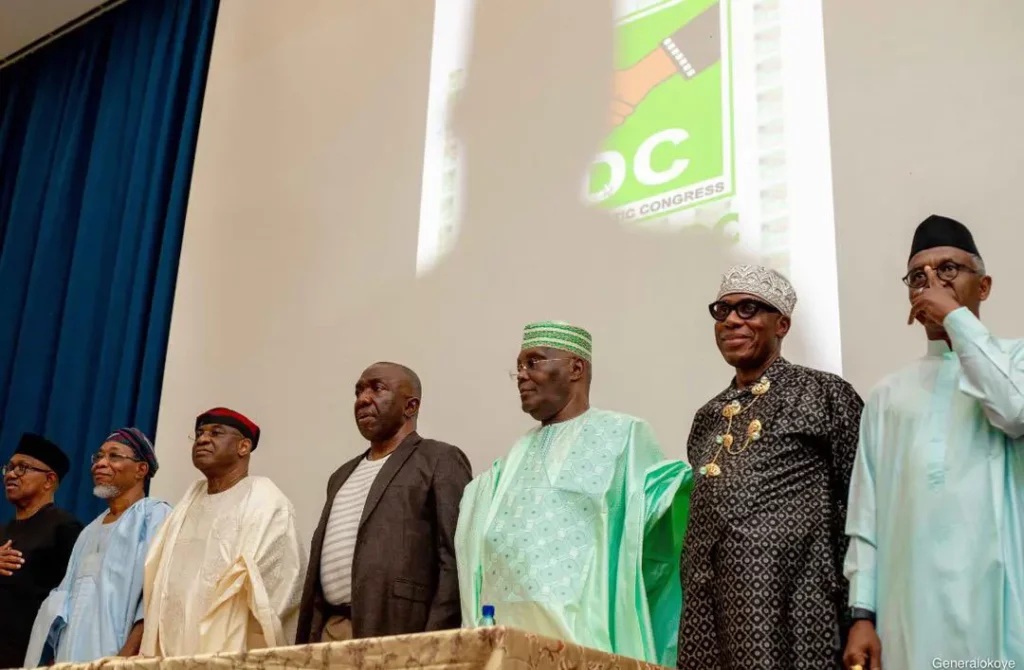Featured
FG launches AI training for 6,000 secondary school teachers
DDM News

The Federal Government has introduced an Artificial Intelligence (AI) training program to equip 6,000 senior secondary school teachers nationwide.
This initiative, spearheaded by the National Senior Secondary Education Commission (NSSEC), aims to integrate AI into Nigeria’s education sector.
Diaspora digital media (DDM) gathered that the training is expected to enhance teaching strategies, improve learning experiences, and prepare students for careers in a technology-driven world.
At the official launch of the training and the unveiling of the minimum standards for senior secondary education in Abuja, Minister of Education, Dr. Maruf Olatunji Alausa, emphasized the need for AI integration.
He described the training as a crucial step in ensuring teachers acquire the skills necessary to prepare students for the digital age.
“The world is undergoing a technological transformation, and AI is at the heart of this evolution,” Alausa stated.
He stressed that AI is no longer a futuristic idea but a present-day reality shaping industries, economies, and societies.
“As educators, we must embrace these advancements to ensure our students are not left behind,” he added.
He highlighted the potential of AI in pedagogy, stating that it offers opportunities to personalize education and foster critical thinking.
“Our objective is to equip students with the necessary knowledge to thrive in a technology-driven society,” he said.
Alausa also unveiled the minimum standards document developed by NSSEC, which will guide the nation’s senior secondary education system.
The document, approved by the National Council on Education, aims to establish consistency, accountability, and measurable improvements across schools.
Minister of State for Education, Professor Suwaiba Ahmed, also spoke at the event.
She emphasized that Nigeria must align with global advancements in digital education to remain competitive.
Ahmed noted that integrating AI into Nigeria’s education system would significantly enhance teaching methodologies and improve learning outcomes.
She stressed that education reforms under President Bola Tinubu’s administration prioritize equipping Nigerian students with 21st-century skills.
“The AI in pedagogy training is a key component of these reforms,” Ahmed stated.
She underscored the importance of empowering teachers, calling them the drivers of this transformation.
“The skills gained from this training will have a long-term impact on students, preparing them for the modern workforce,” she added.
Ahmed, who was represented by her Special Assistant on Technical Matters, Dr. Clara Ujam, urged teachers to maximize the training opportunity.
She encouraged them to apply the knowledge acquired to enhance classroom engagement and improve student performance.
Executive Secretary of NSSEC, Dr. Iyela Ajayi, also addressed participants during the ceremony.
He described the launch of the AI training and the unveiling of minimum standards as a significant step in national education reform.
Ajayi linked the initiative to the “Renewed Hope Agenda” of President Tinubu’s administration, which prioritizes educational transformation.
He stressed that education plays a critical role in national development and economic advancement.
“As we embark on this journey of educational renewal, we must recognize that education is the foundation of a prosperous society,” Ajayi stated.
He emphasized that senior secondary education is pivotal in shaping young minds for higher education, employment, and lifelong learning.
According to him, the training program is a testament to Nigeria’s commitment to excellence, equity, and relevance in education.
The AI training is sponsored by Google Research and supported by Data Science Nigeria and Olabisi Onabanjo University, Ogun State.
The training, which will run for five weeks, is designed to enhance AI pedagogical skills among teachers across all 36 states and the FCT.
It will be delivered virtually and structured into five comprehensive modules tailored for senior secondary school educators.
The program will provide teachers with a deeper understanding of AI tools and their application in modern teaching.
Participants will learn how AI can be integrated into lesson plans to make learning more interactive and engaging.
The training will also focus on how AI can be used to personalize student learning experiences and improve assessment techniques.
By equipping teachers with AI skills, the government aims to prepare students for a future where digital literacy is essential.
Ajayi highlighted that AI is rapidly changing industries, and Nigerian students must be equipped with the right skills to compete globally.
He reiterated the importance of digital education and its role in national development.
He also encouraged participating teachers to embrace the training and actively incorporate AI into their teaching methods.
The training is expected to bridge gaps in traditional teaching approaches by introducing AI-powered educational solutions.
Experts believe that AI-driven education can help address learning disparities and enhance student engagement in classrooms.
The initiative aligns with global trends where AI is increasingly being used to improve teaching and learning experiences.
Educational stakeholders have welcomed the initiative, describing it as a step in the right direction for Nigeria’s education system.
Teachers who complete the AI training will be expected to mentor their colleagues and further spread AI knowledge.
The Federal Government hopes that this initiative will lay the foundation for broader AI adoption in Nigeria’s education sector.
This training is seen as a transformative effort that could redefine how secondary education is delivered across the country.
With advancements in AI, Nigeria aims to position itself as a leader in digital education and innovation.
The successful implementation of this program could pave the way for future AI-driven educational reforms.
As AI continues to shape the global economy, Nigeria’s investment in AI education is expected to yield long-term benefits.
Stakeholders have urged continuous funding and policy support to ensure sustainability and expansion of AI training programs in schools.
If effectively implemented, the AI training could enhance teaching effectiveness and improve student learning outcomes across Nigeria.
For Diaspora Digital Media Updates click on Whatsapp, or Telegram. For eyewitness accounts/ reports/ articles, write to: citizenreports@diasporadigitalmedia.com. Follow us on X (Fomerly Twitter) or Facebook












